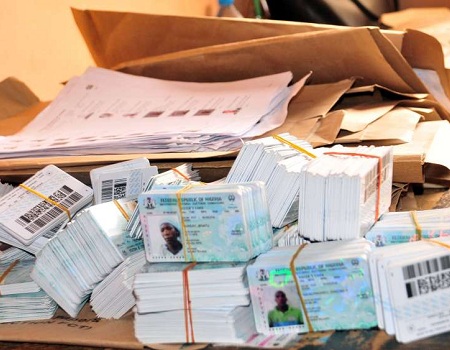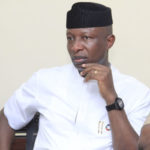August 2018 marks the centenary of women gaining the right to vote globally. But It is indeed disheartening that in spite of the many fights that went down in history for women to finally get the suffrage and right to vote in a democratic society; a century later, women are still not standing up to exercise that right fair and squarely and getting their opinions known and their voices heard as much as their male counterparts. To put it differently, women are still marked less likely than men to contact their elected officials, to affiliate with political organizations and, most starkly of all, to vote or run for and serve in elected offices. Foremost among the reasons usually advanced for this low political expression for women is that politics is reputed to be dirty, where the methods employed include the illegal and the unethical to win in elections and assume power, and where the corruption of public service for personal and narrow group interests has been the accepted norm.
Aside from this, there are also a number of ways today’s women both inside and out of politics are socialized to even doubt their own abilities, leading them to perceive the electoral environment as being tilted against them, even more than it actually is. Yet, it has to be stated that such gender gaps in political participation have significant consequences, including the fact that, at the mass level, who participates in politics greatly determines who receives substantive representation in government thus paving the way for underrepresentation of women in government. The case is clear that when women stay away from politics, they are invariably giving away their voice to others who make their vote count and this unfortunately sets in motion a self- perpetuating cycle of women not having substantial positioning in all the processes of governance.
It is, of course, understandable that many would choose not to dignify the current corrupt political process in Nigeria with their participation as that could mean sharing in the responsibility of putting many of the corrupt governments in power. But it is also the case that it is only in participating that meaningful change could be effected especially as the political parties would essentially act and reflect their perception of active political participants. It has also been observed that some get into office through slim margins resulting from the absence of many real and potential voters. The implication is that every vote, whether cast or not cast, actually counts and this is where women must focus on if they want to be important in the political process.
ALSO READ: Ekiti, Osun polls: INEC plots to use fake observers ―PDP
In essence, now more than ever, we all need strong and dependable representation at all levels and tiers of government and we have the opportunity to get out there to register, get our permanent voter’s cards (PVCs), and not just dump it in our files afterwards for official transactions alone, but to first use it to vote to push back against policies and politicians, new or old, that don’t properly represent our beliefs, gender, needs, and communities. It’s about time we halted the normalization of the disgraceful abuses of power by our representatives by not being complicit in the process that elects these people to power through deliberate absence of many eligible voters particularly the women. By not participating in the electoral process, we are perpetuating the illusion of legitimacy that elected politicians should get away with behaving in the way that they currently do.
To be sure, the women in history who chose to fight and speak out about votes for women, and in the process, suffered in the way that history recorded, did so for women to have the right to vote in the long run. In any case, they would be turning in angst in their graves right now to see that some 100 years later, women still have to be virtually compelled and begged to vote or are too scared and indifferent about politics to contest for electoral positions. We have come a long way but there is still so much more that needs to be done. In particular, our motivating question 100 years after the suffragette movement gained a voice for women and fought for our right to vote should be: “What would these women think of the way we use, or don’t use, that right? Of course, all women don’t share the same political views, but they surely do share many things in common especially as they relate to the poor condition of women in the society manifesting in such issues as women underrepresentation on boards and in parliament, women earning less than men for exact same work, and increasing gender based violence against females.
So, as the 2019 general election draws nearer, we women need to take advantage of their freedom and participate for our own advantage, for that is the best way to make our voices heard. Irrespective of whom we are voting for, women need to be out there voting, and that’s the key. Whether they’re voting for a cause they deeply believe in, voting to ensure their voice is heard, or voting to make a difference in the society, the important thing is to be ready to take advantage of the opportunity to vote and use it to make the point we need to make particularly in recognition and appreciation of the sacrifices of all those who made this possible a hundred years ago. Voting is a privilege as well as a responsibility; we need to use it to build our political power as voting avails us a platform to show our support for democracy and help drive the society in the direction women want. It is therefore important for us to be sure we use and take advantage of this important voting power.
- Yakubu is with the Department of Mass Communication, Kogi State University, Anyigba, Nigeria.
WATCH TOP VIDEOS FROM NIGERIAN TRIBUNE TV
- Relationship Hangout: Public vs Private Proposals – Which Truly Wins in Love?
- “No” Is a Complete Sentence: Why You Should Stop Feeling Guilty
- Relationship Hangout: Friendship Talk 2025 – How to Be a Good Friend & Big Questions on Friendship
- Police Overpower Armed Robbers in Ibadan After Fierce Struggle






